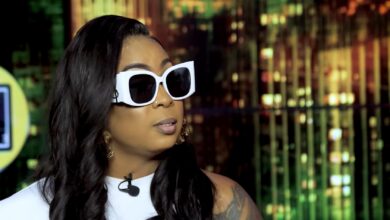
The world of hearing healthcare is on the brink of a revolutionary transformation, where cutting-edge technology and innovative solutions are paving the way for unprecedented advancements in auditory enhancement and care. Gone are the days when hearing loss was synonymous with bulky devices and limited sound quality. The future of hearing care is here, and it promises to revolutionize the way we perceive and interact with sound, offering unparalleled experiences to individuals with hearing impairments and audiophiles alike. Get ready to embark on a journey through the exciting realm of emerging hearing technologies.
Redefining Hearing Aids: Miniaturization and Smart Integration
Traditional hearing aids are undergoing a remarkable transformation, evolving from their once bulky and noticeable designs to sleek, sophisticated devices, thanks to the innovative minds at Alexander Audiology. The future of hearing aids is all about invisibility and seamless integration, where these devices become a natural extension of the user’s self. Imagine a discreet world where hearing aids are virtually undetectable, hidden deep within the ear canal, or cleverly disguised as trendy accessories that blend seamlessly with personal style. This vision is becoming a reality through the utilization of cutting-edge nanotechnology and 3D printing technologies, which enable the creation of ultra-compact hearing aids that offer unparalleled comfort and aesthetics.
The integration of artificial intelligence (AI) takes these devices to an entirely new level of performance. AI-powered hearing aids, a specialty of Alexander Audiology, are designed to adapt and learn from various acoustic environments. These intelligent devices can automatically adjust their settings to optimize sound quality, ensuring users enjoy the best possible hearing experience wherever they go. Whether it’s the bustling ambiance of a city street or the serene atmosphere of a library, AI-enhanced hearing aids can recognize and adapt to different sound profiles. Furthermore, AI enables advanced noise cancellation features, allowing wearers to selectively focus on the sounds they desire while effortlessly filtering out unwanted background noise.
Augmented Hearing: Enhancing Natural Abilities
The concept of augmented hearing is set to redefine our perception of sound enhancement. This technology goes beyond mere amplification, providing users with a heightened sense of auditory perception. Augmented hearing devices use sophisticated algorithms to process sound, enhancing specific frequencies and improving speech clarity. This is particularly beneficial for individuals with hearing loss who struggle to discern speech in noisy environments.
Imagine attending a concert and being able to adjust the volume and tone of the music to suit your preferences, or having a conversation in a crowded restaurant and being able to focus solely on your companion’s voice. Augmented hearing devices will offer personalized sound profiles, allowing users to customize their auditory experience. This technology has the potential to not only assist those with hearing impairments but also enhance the listening experience for music enthusiasts and professionals in various industries.
Brain-Computer Interfaces (BCI): Direct Neural Connection
One of the most groundbreaking developments in hearing care is the emergence of Brain-Computer Interfaces (BCI) for auditory applications. BCI technology establishes a direct communication pathway between the brain and an external device, bypassing the auditory system altogether. This revolutionary approach has the potential to restore hearing to individuals with severe to profound hearing loss, including those who are deaf.
By implanting tiny electrodes in the brain’s auditory cortex, BCI devices can stimulate neural pathways to create the sensation of sound. This technology is already showing promising results in clinical trials, offering hope to those who were once considered untreatable. With further research and development, BCI has the potential to provide a level of hearing clarity and quality that traditional hearing aids cannot match, truly revolutionizing the field of audiology.
Teleaudiology and Remote Care: Accessible Hearing Healthcare
The future of hearing care is not just about advanced devices; it’s also about making hearing healthcare more accessible and convenient. Teleaudiology is a rapidly growing field that utilizes digital technology to provide remote hearing care services. Through video consultations, remote programming, and real-time adjustments, audiologists can now offer personalized care without the need for in-person visits.
This innovative approach to hearing care is particularly beneficial for individuals in remote areas or those with limited mobility. With teleaudiology, hearing aid adjustments, fine-tuning, and even basic hearing tests can be conducted from the comfort of one’s home. This not only improves access to care but also reduces the time and cost associated with traditional hearing healthcare, making it more efficient and patient-centric.
Smart Hearing Ecosystems: Interconnected Devices
The Internet of Things (IoT) is playing a pivotal role in shaping the future of hearing care. Smart hearing ecosystems are being developed, where hearing aids become the central hub, seamlessly connecting with other devices and services. Imagine your hearing aid interacting with your smartphone, home assistant, television, and even your car’s infotainment system.
This level of interconnectivity will enable a host of new features and capabilities. For instance, your hearing aid could automatically adjust the volume of your TV or stream music directly from your smartphone. It could also provide real-time language translation during conversations, making international travel and communication more accessible. Smart hearing ecosystems will not only enhance the user experience but also foster a more inclusive and connected world.
Predictive Maintenance and Health Monitoring
Hearing care is also embracing predictive analytics and health monitoring to ensure optimal device performance and user well-being. Advanced hearing aids will be equipped with sensors and algorithms that can detect and diagnose issues before they become problematic. These devices will be able to monitor the user’s hearing health, track environmental data, and provide insights into the performance of the hearing aid itself.
For instance, the hearing aid might alert the user about an impending battery failure or a potential issue with the device’s performance. It could also analyze the user’s listening habits and environmental exposure, providing personalized recommendations to protect their hearing health. This proactive approach to maintenance and health monitoring will ensure that users receive the best possible care and extend the lifespan of their devices.
Customized Soundscapes and Personalized Therapy
The future of hearing care will also see the rise of personalized sound therapy and customized soundscapes. Just as music streaming services offer tailored playlists, hearing care will provide customized sound experiences. Users will be able to create and curate their own sound environments, selecting specific sounds, music, or ambient noise to suit their mood, preferences, and therapeutic needs.
For individuals with tinnitus, personalized sound therapy can offer much-needed relief. Customized soundscapes can be designed to mask the perception of ringing or buzzing, providing a soothing and calming auditory experience. This level of personalization will not only improve the user’s overall satisfaction but also contribute to their overall well-being and mental health.
Ethical Considerations and Accessibility
While the future of hearing care is brimming with exciting possibilities, it also raises important ethical and accessibility concerns. As technology advances, ensuring equal access to these innovative solutions becomes crucial. The cost of these advanced hearing devices and treatments should not be a barrier to those who need them the most. Governments, healthcare providers, and manufacturers must work together to make these technologies affordable and accessible to all.
Additionally, the potential for misuse or abuse of such powerful technologies cannot be overlooked. Strict regulations and ethical guidelines must be in place to protect user privacy and prevent any potential harm. As we embrace the future of hearing care, finding a balance between innovation and ethical responsibility will be essential.
Conclusion: A New Era of Auditory Excellence
The future of hearing care is an exciting frontier, filled with endless possibilities for enhancing the way we experience sound. From invisible hearing aids to brain-computer interfaces, teleaudiology, and smart ecosystems, the hearing industry is undergoing a profound transformation. These advancements will not only improve the quality of life for individuals with hearing impairments but also open up new auditory experiences for everyone.
As we move forward, the focus should be on making these technologies accessible, affordable, and ethically sound. The future of hearing care holds the promise of a world where hearing loss is no longer a barrier, and where personalized, enhanced sound experiences are within everyone’s reach. Embrace the evolution, and get ready to unlock a new era of auditory excellence.





